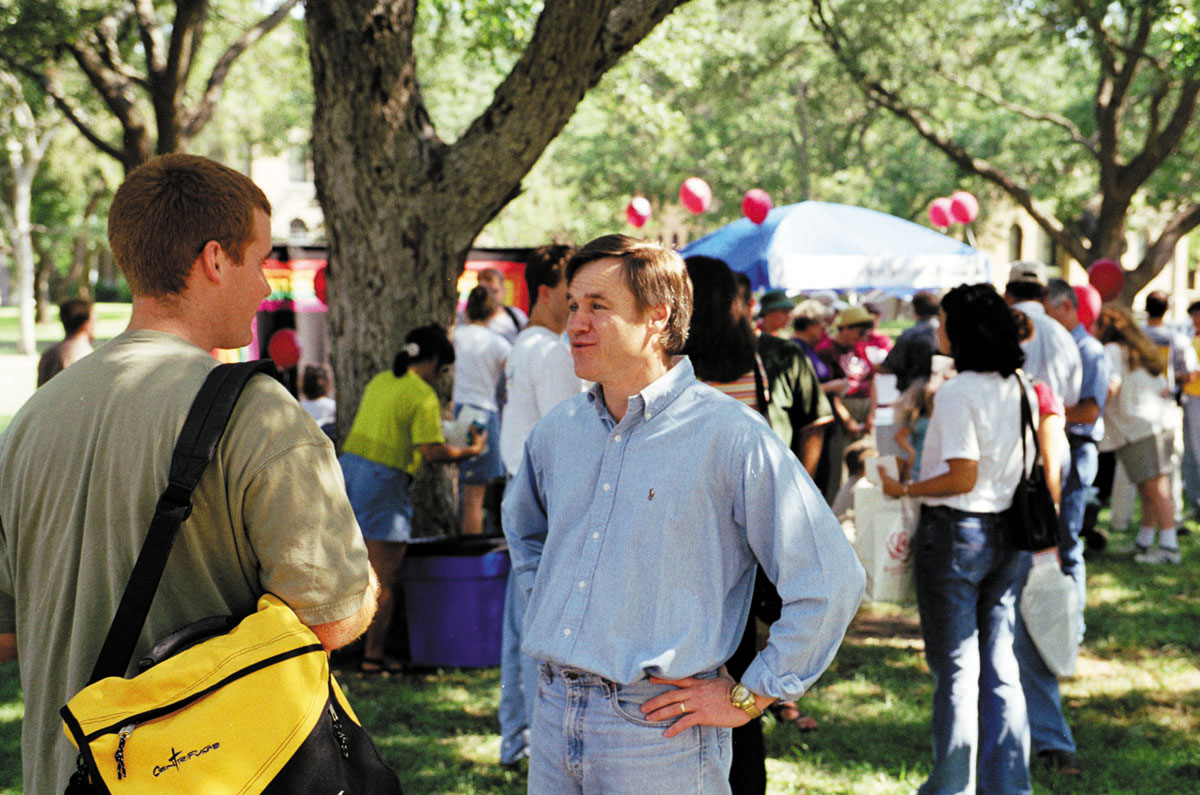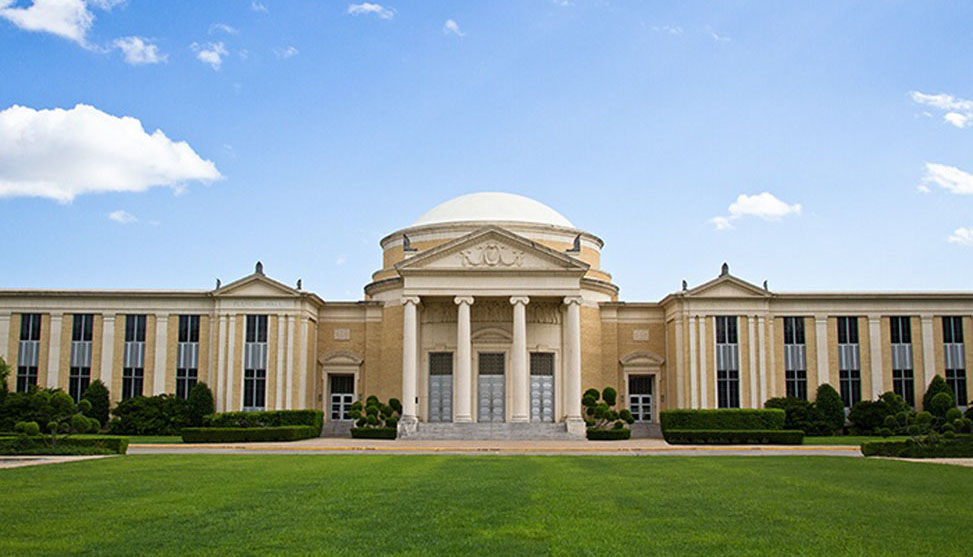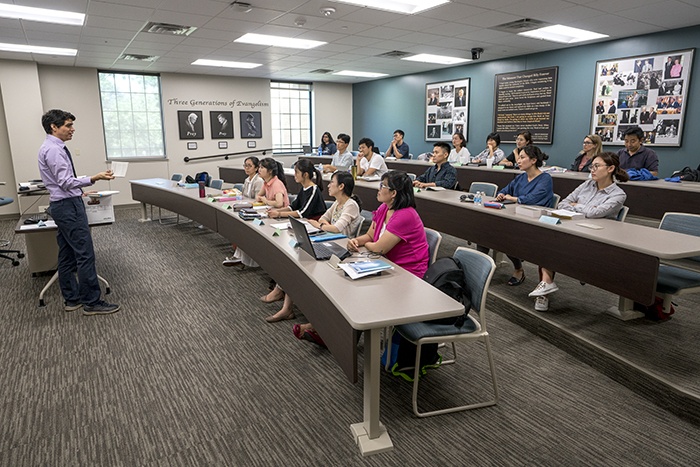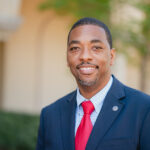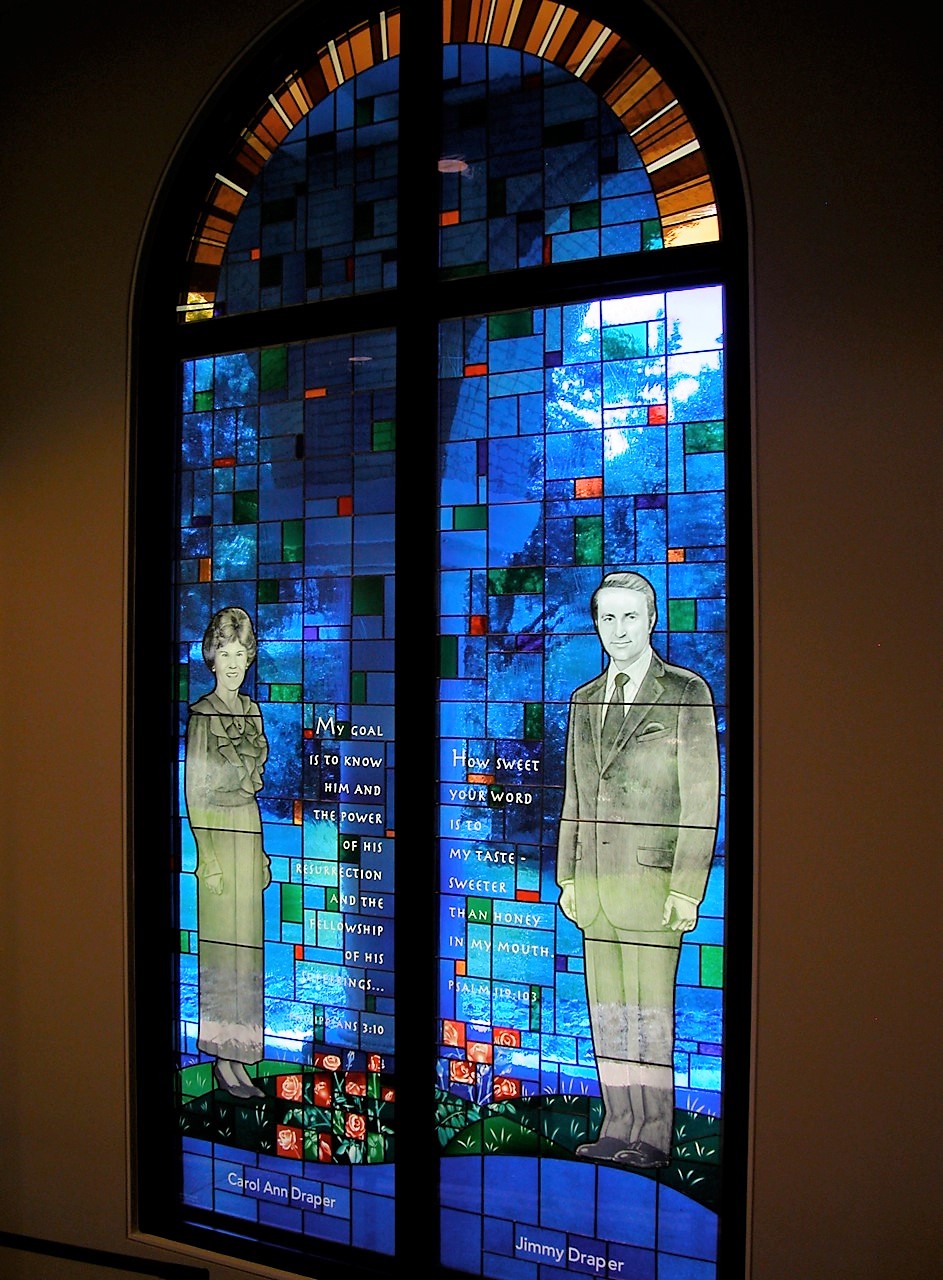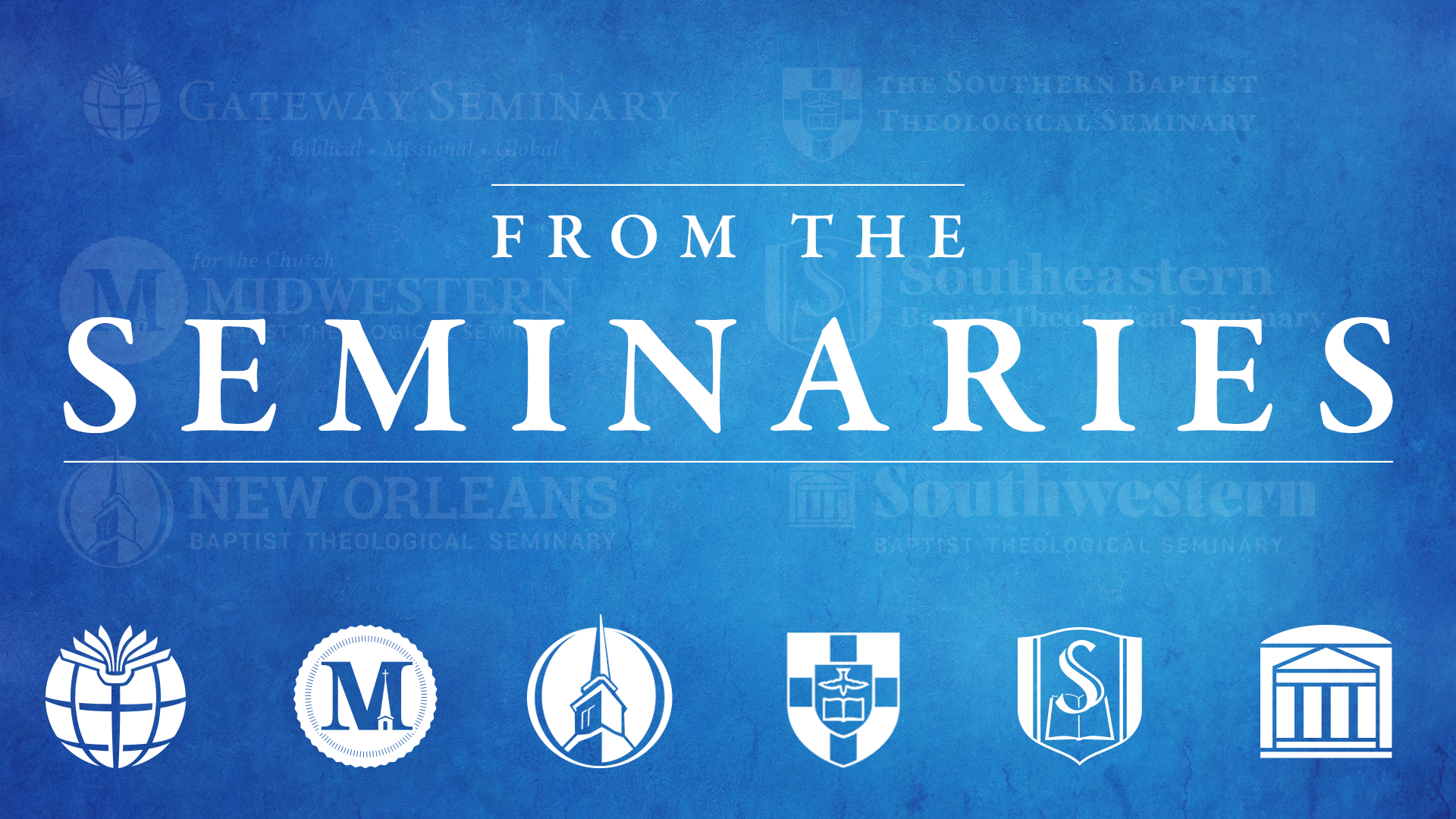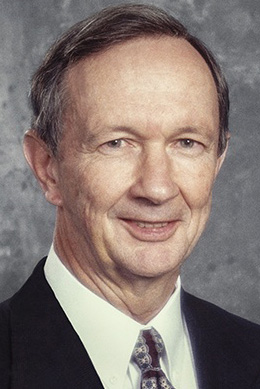
FORT WORTH, Texas (BP)–When David Crutchley was 5, he was diagnosed with Perthes of the right hip, a condition that caused the upper part of his right femur to break down. For two years he could only lay on his back in a plaster cast while his bones were rebuilt.
For two more years he wore a device that kept his leg off the ground and for another year he was on crutches. That time taught Crutchley determination and resiliency, qualities that have served him well even amid the unrest on the streets of Cape Town, South Africa, during the height of the anti-apartheid demonstrations.
But his childhood exposed him to an even greater influence — the grace and love of Jesus Christ, which has guided him from his southern African origins to Southwestern Baptist Theological Seminary as dean of the school of theology.
Crutchley’s spiritual journey began in the former British colony of Rhodesia (now Zimbabwe), where his South African parents had chosen to live.
From the very beginning, Crutchley recalled, he lived in a home devoted to the Lord. His mother was the daughter of an Anglican minister and his father, a certified public accountant, was an active deacon and a former president of the Central Baptist Union of Southern and Northern Rhodesia.
“It was a home where we had a family altar every day,” Crutchley said.
His parents’ godly influence touched all three Crutchley children. Crutchley’s brother, Doug, is a street evangelist in Cape Town and his sister, Lynn, does literacy work among the squatter camps of Cape Town.
The missionary thread that has run throughout Crutchley’s life likely began with missionaries who frequently stayed at the Crutchley home. A conversation with the wife of a missionary to Angola resulted in Crutchley asking the Lord to save him. He was 11 when he was sent to a Baptist boarding school in Natal where, he said, “I became aware of the need to hand over the reins of my life to Jesus.”
With the intent of pursuing a legal career, Crutchley earned two law degrees from the University of Rhodesia in the mid-1970s. He wanted to argue before the high court of the country and wanted to be an advocate, but God had other plans for him. And God used that “missionary thread” to move the aspiring barrister away from the arena of legal debate into the service of the Lord.
While growing up, Crutchley knew a number of Southern Baptists. One was Carol Fray, the daughter of a missionary, whom he had known since he was 10. They had dated during his law school days and married in 1977.
The newlyweds came to Southwestern for theological training so that he could be more useful to his fellow Rhodesian Baptists as a layman. What he hadn’t counted on was a divine call to put aside his legal training and go into the ministry fulltime.
While studying at Southwestern more than 20 years ago, Crutchley said, he went through a “process of reflection and discovery. It brought me to a vocational crisis.” He wanted to return to Zimbabwe and practice law, and the last thing he wanted to do was to study more in a doctoral program.
However, his call was clear, and after “burning the candle at three ends” with his work, a new family and 16 credit hours a semester, he earned his master of divinity in 1980. After that, he went to work on a Ph.D. in New Testament, which he received in 1985. In his dissertation, Crutchley drew from his legal background as he wrote on Paul’s use of legal metaphors.
While working on his doctorate, Crutchley gained important pastoral experience as pastor of Eastside Baptist Church in Marietta, Okla., for two and a half years.
“A British square trying to fit into an Oklahoma circle made for an interesting dynamic,” Crutchley recalled.
That time was important for Crutchley because it gave him the required two years of practical experience that he needed to be a career missionary with the IMB, a requirement he did not know about at the time.
“The Lord knew I needed this time of preparation,” said Crutchley, who describes God as “a divine architect who draws eclectically from the experiences of a person’s life and uses them for his service.”
The interlude in Oklahoma, he added, demonstrated to him “the incredible divine foreknowledge. One looks back and marvels at how God has woven the tapestry and circumstances.”
After acquiring his U.S. citizenship in 1984, a process made more complicated because he did not want to give up his South African passport, Crutchley was appointed by the Southern Baptist International Mission Board to South Africa and started his duties as a lecturer at Cape Town Baptist Theological College in 1985.
He and his family went into a country that was in the throes of a struggle against apartheid.
“South Africa was a tinderbox,” he said. “Volatility was everywhere.”
In those early days, he would often drive through streets draped with rubble like bricks and burning tires. Clouds of tear gas still hung in the air.
“It was a baptism of fire.”
During his first year, the seminary, located in an “ethnic-free zone” because blacks could not come into white areas, was sealed off for a political march in protest against Nelson Mandela’s continued imprisonment.
On that day, Crutchley still managed to get to class by scaling a 6-foot fence in his three-piece suit. He quipped that the students were probably expecting no classes that day and must have been disappointed to see him coming.
In these surroundings, the seminary was never an ivory tower where issues of justice and equity were discussed in abstract terms, Crutchley said.
“What went on in the macrocosm was imported into the microcosm,” he said.
The students represented a diversity of races: blacks, whites, Asians and Malays, he said, adding that it was inevitable that “whatever transpired politically required theological analysis and reflection.”
Both students and professors had to grapple with sophisticated theological problems.
“I found [the struggle] challenging in terms of defining what is the gospel and how it relates to suffering and political injustice,” he said. Part of the result for him was discovering that “the Christian cannot be exempt from the fight for social justice.”
“To me, the violation of human dignity is a moral issue,” he said.
In his 14 years in Cape Town, Crutchley learned to give voice to that belief. Though he didn’t march in the streets, he wrote several articles on human rights and taught his students that God does not “countenance the violation of those who bear his image.”
His belief that Christianity must be more than mental assent, that it must include praxis, was shaped to a large extent during those tumultuous years in South Africa, and it has returned with him to Southwestern.
As dean of the school of theology succeeding the late Tommy Lea, Crutchley aims to give his students an arena for academic excellence. But, he is quick to caution, “theological acumen is insufficient. The heart must embrace a personal walk with Jesus each day. Acquiring a template for ministry without spiritual vitality is not enough.”
Indeed, meeting the need to put walking shoes on Christian theology is what Crutchley hopes to be remembered for as dean.
“Theological education cannot stay within the academic ghetto,” he said. “You must have spiritual praxis.
“Students need to be men and women of head and heart, classroom and the prayer closet, of the stretched mind and the callused knee.”
To find a model for the balance between academics and praxis, Crutchley looks no further than to a man who was dean while Crutchley was a student. Huber Drumwright, dean of theology from 1973-80, had been a mentor for Crutchley.
“He always had time for his students, loved the faculty and was gifted in the teaching arena,” Crutchley said.
Other models include Southwestern professors C.W. Brister, distinguished professor of pastoral ministry; James Leo Garrett, distinguished professor emeritus of theology; Jack MacGorman and Curtis Vaughan, distinguished professors emeritus of New Testament; and Roy Fish, distinguished professor of evangelism.
The circumstances of his life have taught Crutchley to hold in tension “a healthy respect for the sovereignty of God and the citadel of humanity’s free will.”
And the determination and resilience ingrained into his character as a young lad have equipped him to deal with the costly, arduous nature of ministry.
As he continues to meet the challenge of leading Southwestern’s school of theology, Crutchley is guided by the apostle Paul’s “last will and testament” in 2 Timothy 4:6-7, which Crutchley sums up as: “No reserve. No retreat. No regret.”
–30–
(BP) photos posted in the BP Photo Library at https://www.bpnews.net. Photo titles: THEOLOGY DEAN’S PRIORITIES and FROM SOUTH AFRICA.
